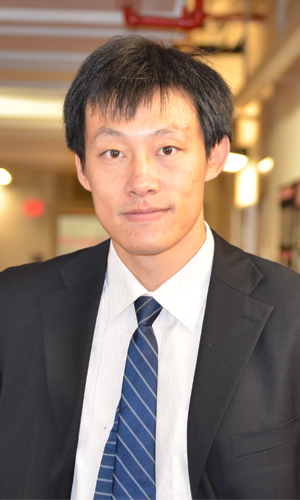ISyE Seminar Series: Yunan Liu
 "An Online Learning Approach to Dynamic Pricing and Capacity Sizing in Service Systems"Presentation by Yunan Liu Wednesday, February 16 |
|
About the seminar: We study a dynamic pricing and capacity sizing problem in a queueing system, where the service provider’s objective is to obtain the optimal service fee p and service capacity μ so as to maximize cumulative expected profit (the service revenue minus the staffing cost and delay penalty). Due to the complex nature of the queueing dynamics, such a problem has no analytic solution so that previous research often resorts to heavy-traffic analysis where both the arrival rate and service rate are sent to infinity. In this work we propose an online learning framework designed for solving this problem which does not require the system’s scale to increase. Our framework is dubbed Gradient-based Online Learning in Queue (GOLiQ). GOLiQ organizes the time horizon into successive operational cycles and prescribes an efficient procedure to obtain improved pricing and staffing policies in each cycle using data collected in previous cycles. Data here include the number of customer arrivals, waiting times, and the server’s busy times. The ingenuity of this approach lies in its online nature, which allows the service provider to do better by interacting with the environment. Effectiveness of GOLiQ is substantiated by (i) theoretical results including the algorithm convergence and regret analysis (with a logarithmic regret bound), and (ii) engineering confirmation via simulation experiments. “An Online Learning Approach to Dynamic Pricing and Capacity Sizing in Service Systems” (pdf) |
|
Bio:
Yunan Liu is currently an Associate Professor at the Department of Industrial and Systems Engineering at North Carolina State University. He obtained his B.E. degree from the Electrical Engineering Department at Tsinghua University, M.S. and Ph.D. degrees from the Industrial Engineering and Operations Research Department at Columbia University. His research interests include stochastic modeling, applied probability, simulation, queueing theory, optimal control, and online learning, with applications to customer contact centers, health care, production, blockchain and transportation systems. He teaches graduate and undergraduate classes on stochastic models, simulations, queueing theory and reinforcement learning. His work was awarded the first place in the INFORMS Junior Faculty Interest Group Paper Competition in 2016.
|